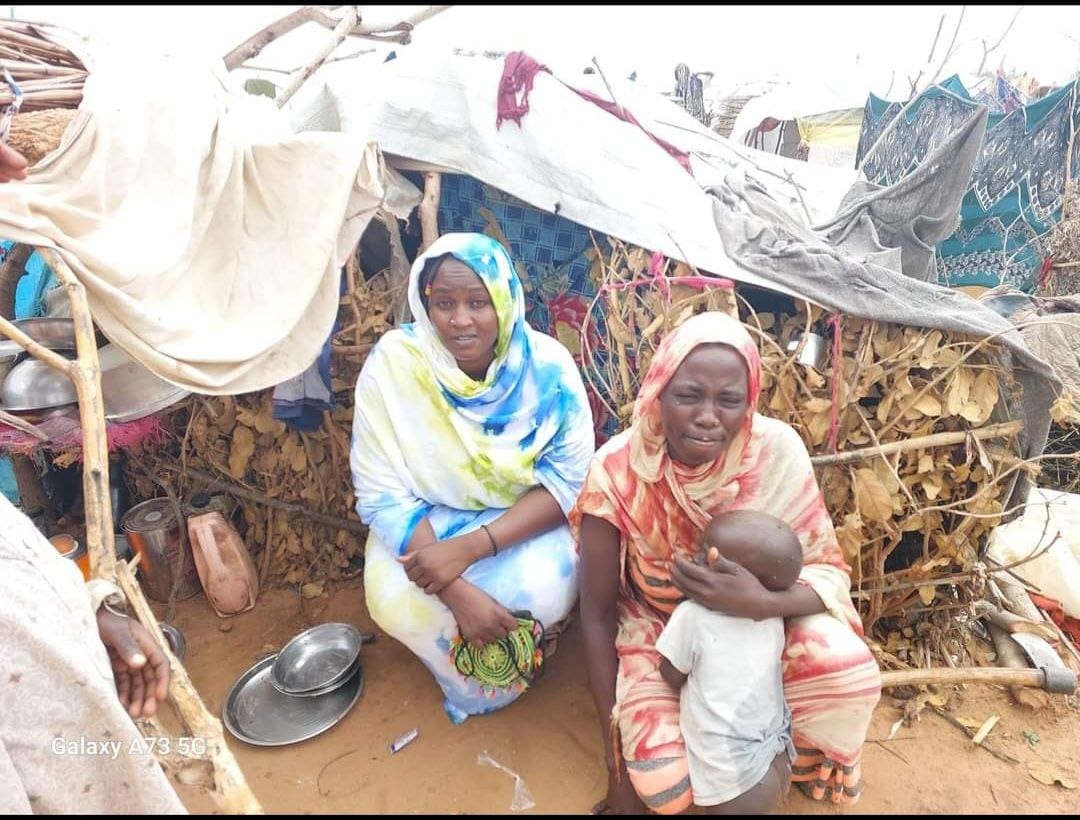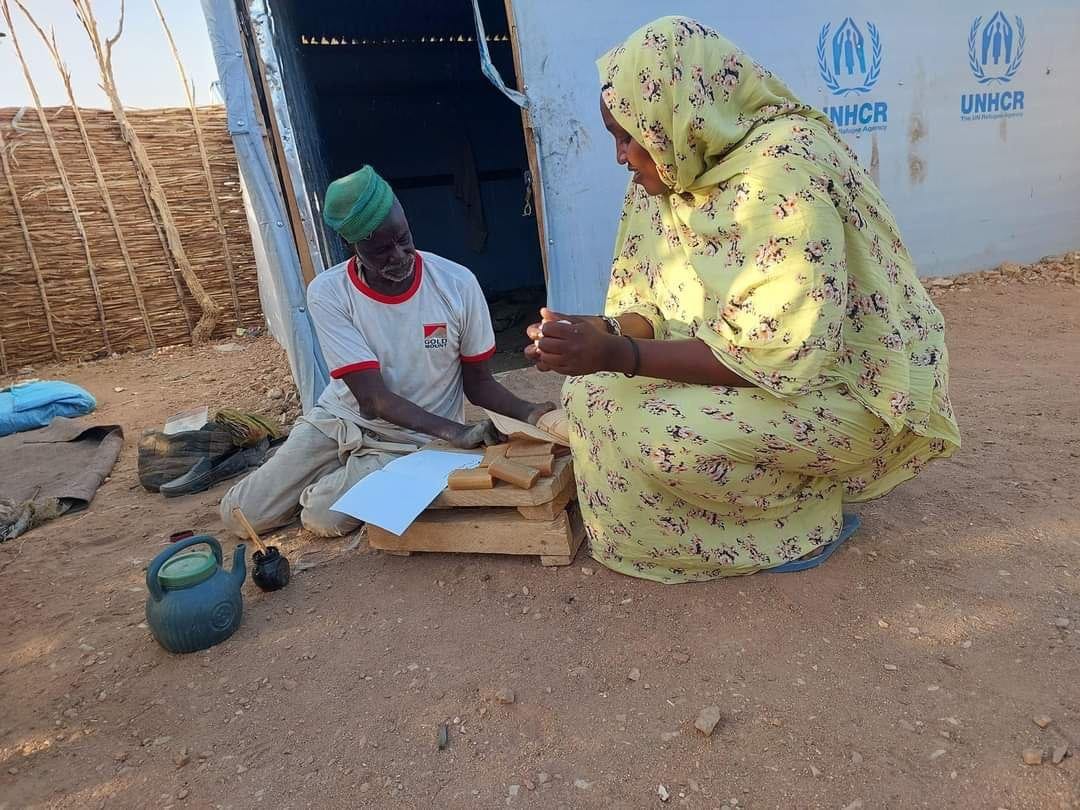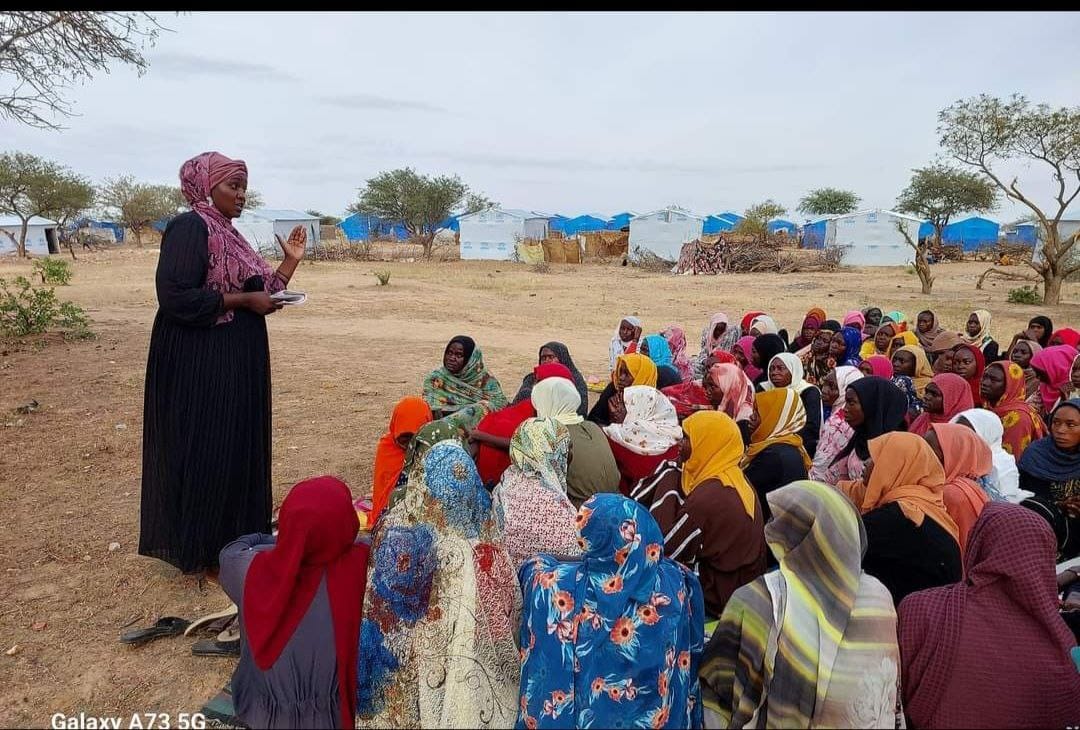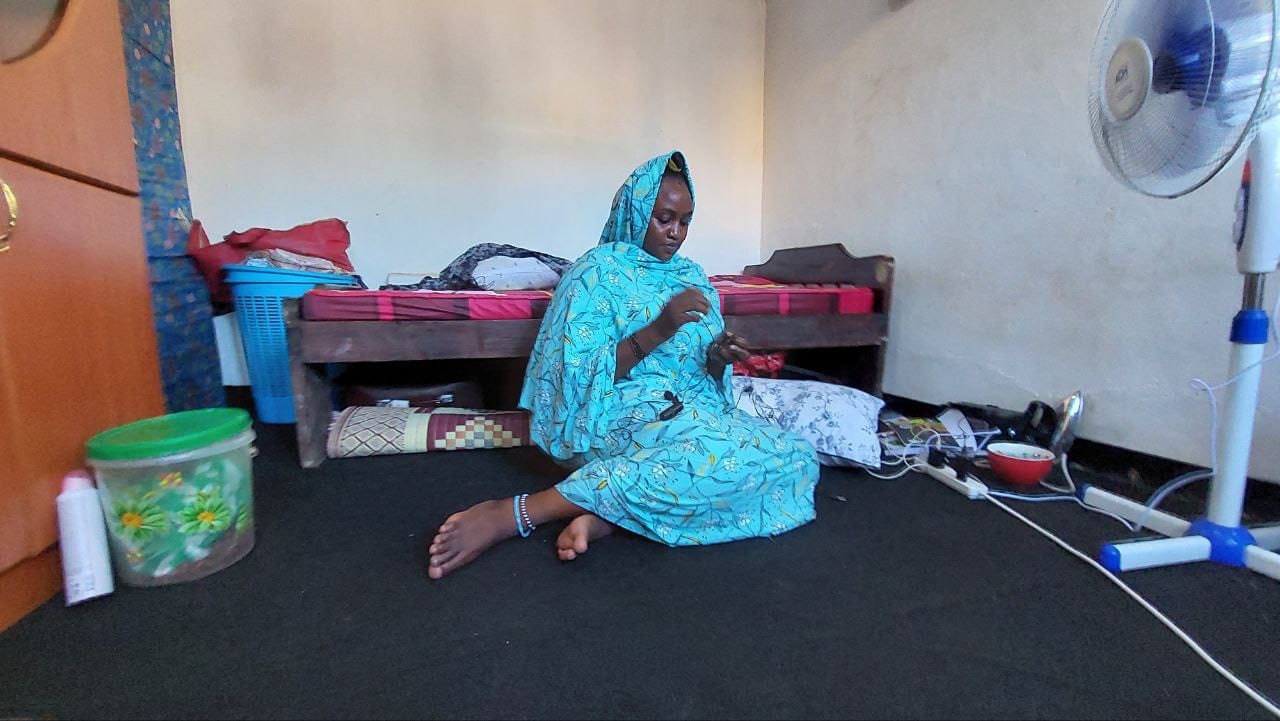I'm Not Comfortable Anywhere
Since the war began a year ago, millions of Sudanese have fled their homes. On World Press Freedom Day, Alive-in/ brings you the story of Safia, a Sudanese journalist forced to flee her home.

Reporting by Entisar Mohammed Abdallah.
Written by Logain Ali and Brian Conley
This story is part of a partnership between Alive-in/ and DT-Institute to support Sudanese journalists inside and outside Sudan. DT Institute is both a funder and an implementer of peace and development projects. More stories can be read in Arabic on the Alive-in/Sudan Facebook page.
Alive-in is a not-for-profit media agency that mentors journalists from underrepresented communities to increase local and national understanding.
If you are able to support our work financially, please click the button below.
KAMPALA, UGANDA-Safia Ishag Adam prepared coffee for Alive-in/Sudan's reporter with a smile, nestled in her corner room within a student housing complex in Makerere Hill, Kampala. Despite the usually bustling atmosphere, the midday rain lends an air of solitude and isolation to the complex.
Safia, who is 30 years old, was working as a journalist at the Ministry of Information (previously known as Ministry of Culture and Media) in her hometown Al-Geneina (Hay Al-Shati) when she had to flee to cross the border with Chad to the town of Adre on June 12th 2023.
“On the 5th of June, we were attacked in the neighborhood, and it lasted for three days, from the 5th to the 7th. The Janjaweed were searching for me from house to house, I was also bouncing from one neighbor to the other to find a safe place, but of course, each individual I went to was scared to host me in fear of being attacked.”
After another five days during which she faced continuous targeting and harassment, Safia and her family decided she had to flee.”There was no way for us all to leave together, and we didn't have money. Traveling was expensive, and you had to pay 40,000 to the car driver to get out and this is besides the harassment you will have to face. We decided to leave, and one of our neighbors had connections with the Arabs. He told him that my sister is sick and needs to be taken to Adré for treatment.”
The siege of Al-Geneina began at the start of the war back in April of 2023, leaving Safia and many others without water or food as clashes continued between the Rapid Support Military Forces and the Sudanese Armed Forces.
“There was a heavy deployment of Rapid Support Forces in all the streets of Geneina”
When the fighting intensified with the formation of tribal alliances and violent campaigns targeted journalists, Safia took the same road many before her journeyed, and on June 12th after two months of besiegement, she fled her home in Geneina and crossed the border with Chad to the town of Adrè.

“I left my mother and father there, took my little sister, and we left together. When the car started moving, it didn't go straight west; it turned north, and then up. From Geneina, it might have taken an hour, and from Geneina to the Naseem district, maybe half an hour. When we reached the Naseem district, the fuel was running out.”
Al-Geneina is the capital city of West Darfur State, resilient and rich in its cultural heritage, once a home to at least half a million residents. Despite efforts to promote stability over the years, it has witnessed an extensive amount of atrocities including the ethnic cleansing of African tribes like the Masalit and Burgos who make up the majority of its inhabitants. Leading to a massive exodus to neighboring country, Chad.
Safia shares her experience at the gas station during the refueling of the car, “The female attendant came to fuel the car. She said “You’re taking all these *Ambayat to Chad, who are you leaving us for, the authorities continuously shell us. The driver replied, Their eyes are *Bargaweyat, they got scared and decided to leave the shelling and head for Chad.”
Ambay/at used as a derogatory term to refer to non-Arab tribes within the region. Bargawey/at is used to reference their tribal affiliation, in this case from the Burgu/Bargo/Bergo tribes, phenotypically recognized by their distinct big round eyes. The Burgo tribe are densely populated around the mountainous eastern region of Chad and Sudan’s western part of Darfur. Recent reports out of Darfur suggest the ethnic cleansing of so-called “African tribes” such as the Bargo, Masalit and many others is on-going.
“Then we left, we came across the first checkpoint, then the second, but before we reached the third, there was a huge creek, when we got there, it was filled with corpses, more than 15 young men that looked around the ages of 20, 25, 30. Some of the bodies were bloated, others looked new. They were killed and dumped into the creek, then we found the third checkpoint just ahead.”
Checkpoints and roadblocks have been a feature of every Sudanese conflict in recent memory. The last year of war has been no different. Organizations such as Amnesty International, the World Food Programme, and Al-Jazeera have all reported about the frequent use of checkpoints and the impact of looting, both of which exacerbate civilians’ fears and impede them from fleeing to safer areas or leaving Sudan altogether.

Safia described passing more than a dozen such checkpoints, including one in Jahkry that she remembered especially strongly, recalling that a group of five 15-18 year olds beat and insulted them, calling them ‘Ambayat’, “They stopped the car, and we all got out. We were all women, and there were three young men with us. They looted our phones and personal belongings, beat the young men, and whipped us. They also beat the car driver. They told him that you are transporting these people from Geneina and leaving us to die. After that, we managed to reach the Chadian border after suffering and exhaustion.”
According to data from the United Nations High Commission on Refugees (UNHCR) there are currently more than 8.6 million Sudanese people forcibly displaced. The majority of these, more than 6.5 million, are displaced inside Sudan.
Once Safia reached Adrè, although outside the conflict zone, life was not much better. She described the situation there as disastrous. Although there was little help offered by international NGOs, local people did what they could to assist the refugees from Sudan through local initiatives and small-scale aid, as well as support from the government of Chad.
Initially Safia stopped in Adrè. “I arrived in Adrè on the 12th of June. On the 14th, there was a withdrawal of all the people residing in Al Geneina who came to Adrè. The humanitarian situation was very catastrophic. We arrived in the fall, and the daytime was extremely hot, while the evenings were rainy. There was no food or water.“
“The camp is basically surrounded by stone and mountains, and if it gets slightly warmer, snakes come out.”
After two months Safia managed to leave Chad and traveled to Kampala via an Ethiopian Airlines flight. For the past nine months Safia has lived in one room at the student housing complex in Makerere Hill.
Safia said, “I came to Kampala because I didn't feel safe, even in Adré. Several times, I was assaulted by people in the market inside the camp. I faced harassment in the street. They wanted to snatch my phone, but I managed to escape.
Asked about her work, Safia lamented, "Currently, I'm not working at all. The last salary we received was during Ramadan, and it was supposed to be paid before Eid, but then the events and confrontations started. Until now, no organization has paid us salaries, and we're on unpaid leave, jobless, and without any means of livelihood."
For the moment Safia resides in Kampala, where she has found relative comfort compared to her last days in Sudan and on the long journey to Uganda.

